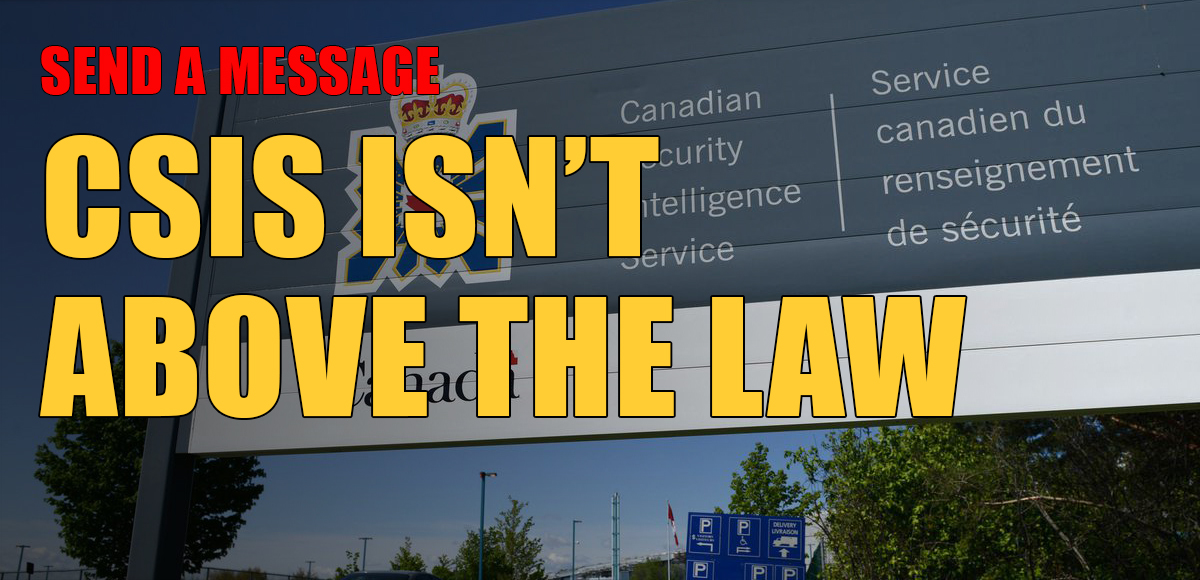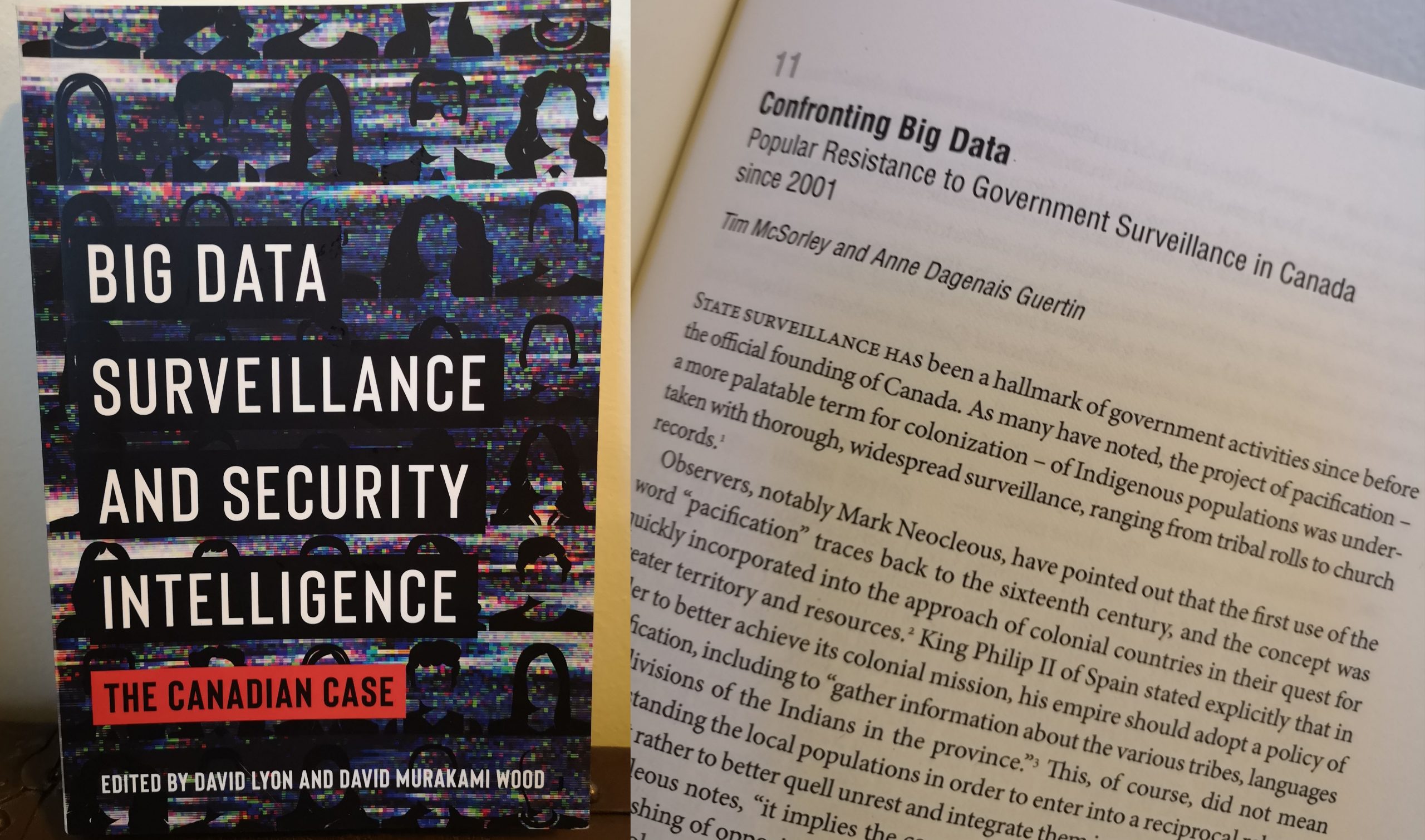The violent attacks on Capitol Hill in Washington, DC, on January 6th were, in large part, a culmination of four years of a political regime that incited violence and hatred based on racism, white supremacy and xenophobia.
In the aftermath, governments, law enforcement and the public are searching for ways to hold the perpetrators accountable and ensure such violence isn’t repeated, even as threats of similar mob violence on inauguration day rise.
In the flurry of responses, there have been numerous calls in the United States and Canada to use, and even expand, anti-terrorism laws to arrest and prosecute the participants of the Jan. 6th riots, as well as against the white supremacist and neo-Nazi groups to which many of them belong and that played a central organizing role in these attacks. It’s understandable to want to use every tool possible. Many are rightly pointing out the urgency of the situation, and that legally designating these groups as terrorist entities would send an immediate message that the government takes the threats from these organizations seriously. There is also a feeling of satisfaction that those who have thrown around spurious and dangerous accusations of “terrorism” in order to denigrate and wish violence upon others should now be subject to the same. It is a feeling that, finally, those who truly pose a violent threat to the public are the ones being targeted by the most powerful and far-reaching laws on the books.
We share these concerns for urgent action, and the frustration that for years lawmakers and security agencies have in large part ignored and downplayed the threat from these groups.
The origins of anti-terrorism laws in the US, Canada and around the world, though, are mired in racism, xenophobia and political opportunism, and have played an important role leading to this moment. The “War on Terror” opened the floodgate for ever expanding state surveillance; the justification for secret trials and secret evidence; the normalization of rendition, torture and indefinite detention; and the creation of government lists where it’s easy to get on, but incredibly difficult to get off. These laws have both been justified by, and have fed into, Islamophobia, colonialism, racism, xenophobia and hate. In many ways, these groups rode the coat tails of this never-ending war, hurling accusations of terrorism at all who they saw as un-American, up to the steps of Capitol Hill.
Canada is no stranger to this trend. The 20 years since 9/11 and the introduction of the Anti-Terrorism Act has seen a constant increase in anti-terrorism laws whose primary targets have been Muslim and Arab people and communities, but also used to justify surveillance and criminalization of Indigenous land defenders, climate justice organizers and others.
Neither is Canada a stranger to the growth of white supremacist and racist violence. This includes ties to the violence in Washington, with Canadians participating, along with the Canadian roots of the Proud Boys, one of the central instigators and a group which has long encouraged racist and hate-based violence. There are active chapters of the Proud Boys in Canada, and the founder of the group is Canadian, having risen to prominence as one of the co-founders of Vice magazine.
There has been a swift reaction in Canada, with increased calls for the government to take seriously the threats of groups like the Proud Boys, as well as their fellow-travellers like the III%’s, and to invest greater resources into the investigation and prosecution of white supremacist and hate organizations that actively call for violence. These calls for action aren’t new: an open letter in late 2020 organized by the National Council of Canadian Muslims and signed by 26 organizations urged the Canadian government to act; it is more imperative than ever that Prime Minister Trudeau and his cabinet show what concrete steps they will take to counter hate and violence.
However, the response to the Jan. 6th attacks has also included calls for the Proud Boys, in particular, to be added to Canada’s Terrorist Entities List, a criminal code provision that allows the Minister of Public Safety to declare an organization or individual a terrorist entity, thereby restricting their access to financial and other material resources in Canada (it does not actually bar people from being members of said group).

Labeling the Proud Boys a terrorist group may seem like the right decision. For the past 20 years, we’ve been told that the worst threats to our safety come from terrorist organizations. We’ve also seen government after government invest the most focus and resources into addressing the “terrorist threat.” So when we are confronted with a violent, politically motivated group, it feels only right that they would also face these consequences.
But the Terrorist Entities List, like so many of Canada’s anti-terrorism laws, is a deeply problematic and rights-violating provision, the use of which undermines some of the most basic principles of our justice system.
The process to add a group to the Terrorist Entities List is in section 83.05 of the Criminal Code. The listing process takes place in secret: The Minister of Public Safety, based on advice from Canada’s security agencies, makes a recommendation to the Governor in Council, who then approves the listing. Groups who are added are not informed in advance, nor given the chance to address the accusations levelled against them. While the decision must meet the standard of “reasonable grounds to believe,” the decision is based on secret information, including information that would be inadmissible in court. For example, it may include anonymous intelligence that could be inaccurate or obtained through mistreatment and/or torture. Only once a group is added does the listing become public, and they are in a position to challenge their listing.
Even then, though, they are not granted access to all the information used against them, which can be withheld based on several exceptions, including national security grounds. This makes it incredibly difficult to mount a defense. The allowance of secret evidence is common in anti-terrorism laws, and goes directly against the expectation Canadians have that someone faced with such a serious accusation would be able to know the entire case against them, and be able to fully challenge it.
Beyond these procedural problems, the placement of an organization on the list is up to the discretion of the government. There is no rule that if an entity engages in terrorism that it must be listed. Terrorism, under Canadian law, is any act that is politically, religiously or ideologically motivated, which aims to intimidate or compel an action, and which intentionally causes death, serious bodily harm, endangers a person’s life, causes substantial property damage or disrupts essential systems. This includes any conspiracy, attempt or threat to commit any of these acts. There are multiple right-wing groups that could fit this description, ranging from Golden Dawn, to Aryan Guard, to the Bugaloo, to 09A, to the Base. Even more acts of right-wing violence, such as the horrific attacks on the Centre culturel islamique de Québec in 2017, on two Christchurch mosques in New Zealand in 2019, and on the Tree of Life congregation in Pittsburgh in 2019 could be included, but because they are ostensibly “lone wolf” actions, the groups that influenced them are not themselves pursued.
However, the government’s discretionary powers has meant that of the 60 groups currently on the Terrorist Entities List, only two are white supremacist groups, both added in summer 2019. The government has and continues to ignore white supremacist violence, adding to the false and harmful narrative that terrorism is overwhelmingly committed by non-white/non-Western/non-Christian people, and reinforcing racist associations between violence and racialized people in general. To date, the Terrorist Entities List has helped perpetuate the idea that white supremacist and neo-Nazi organizations do not need to be taken as seriously.
Why not right that wrong now, by adding the Proud Boys and others like them to the list? The problem is that by supporting the use of the list now, we legitimize its past and future use. Adding white supremacist groups does not address the rights-violating issues of secret evidence and decision-making (which seeps into other areas of law), and will not prevent future use of the list to political ends.
Expanding the use of the list now erodes our ability to fight its use in the future. We have already seen politicians and their supporters label Indigenous activists and Black Lives Matter organizers as “radicals” and “terrorists;” in the US, outgoing president Donald Trump moved to designate antifa activists as terrorists, with two weeks left to his term. Future Canadian governments could easily take advantage of a growing acceptance of the Terrorist Entities List to add those fighting for justice – but against their political interests – to the list. And we would be left without credibility to challenge them.
The answer instead lays in the calls that have gone out from civil liberties, anti-racist and legal experts since 2001: there are tools in Canada’s criminal code that can be used to protect our safety and address organized violence without needing to resort to anti-terrorism laws which undermine due process and violate our rights under the Charter of Rights and Freedoms. Legal experts Kent Roach and Craig Forcese make a powerful argument in a 2018 article calling the Terrorist Entities List “yesterday’s law.” Civil liberties and legal groups like the BC Civil Liberties Association, the Canadian Civil Liberties Association, la Ligue des droits et libertés and the Canadian Bar Association have all denounced the Terrorist Entities List, many calling for its abolition, laying out in multiple briefs to Parliament the ways violent organizations can be held to account while ensuring the integrity of our judicial system. Since 2002, our coalition of 45 Canadian organizations has called for the end to anti-terrorism laws that allow for the use of secret evidence and hearings. And as recently as 2018, the NDP’s public safety critic denounced the list in a parliamentary committee, attempting to amend the law to provide greater protections. It was voted down by both Liberal and Conservative members of the committee.
It is easier said than done, but we do not need to use rights-violating laws to fight against groups like the Proud Boys. We need lawmakers to have the political will and courage to devote the resources necessary to take on these groups, and counter violence and hate in general. That does not mean that we can’t improve Canada’s laws to address this real and growing threat. But using the Terrorist Entities List isn’t one of them.
Since you’re here…… we have a small favour to ask. Here at ICLMG, we are working very hard to protect and promote human rights and civil liberties in the context of the so-called “war on terror” in Canada. We do not receive any financial support from any federal, provincial or municipal governments or political parties. You can become our patron on Patreon and get rewards in exchange for your support. You can give as little as $1/month (that’s only $12/year!) and you can unsubscribe at any time. Any donations will go a long way to support our work. |














